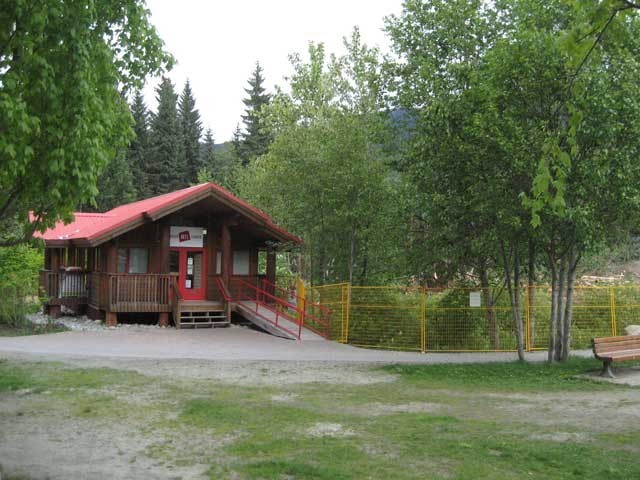Along with all of the other newcomers to town combing the
classifieds each and every Thursday, the Whistler Arts Council (WAC) is stepping
into the fray, searching for a new office for its staff members to call home.
Doti Niedermayer, the executive director of WAC, said they’re
uncertain about where they’ll end up, but setting up shop in MY Millennium
Place is a distinct possibility.
“I think on the one hand we’ve been looking at Millennium Place
and just trying to find a space that works for us in there, given the size of
our staff and how we work,” she explained. She added that the space that is
available is very broken up and not really conducive to the type of open-office
environment they are used to.
“So there’s like one little boardroom here, and another
boardroom there, and a meeting room here and a room there,” she said. “And we
all work kind of in an open concept.”
WAC’s offices have been in a number of places throughout the
village — they used to have an office in Millennium Place, and in more
recent years, have been housed in a portable building that has seen several
occupants on several sites.
The building with the red roof started out in a lumber yard in
Function Junction. It was later donated to the Whistler Centre for Business and
the Arts, and re-located to the site of the new library. Later it became the
office of the Whistler Housing Authority, before the WHA moved to the Beaver
Flats building in Whistler Creek. Then the arts council became tenants.
For the past two years, the arts council has been in the
building on Lot 1/9.
But the number of staff at the arts council has increased
significantly over the past year or so — they now boast five full-time
staff members, plus contractors who sometimes need to work out of their
offices.
While the current building isn’t the ideal size, Niedermayer
said they could live with it for the next year or two, pointing out that she
isn’t sure whether WAC staff will increase or decrease after the Olympics.
“We’re getting squeezed, but we’re making it work,” she said.
Niedermayer said they definitely need to be out of the space
within the next month and a half, but that aside from the size of the current
space, their main issue is dealing with the noise from the construction that
has started on Lot 1/9. Trees began to fall on Wednesday, May 28, and it’s been
pretty difficult to work.
“We’ve got to go,” she said adding that the entire building was
shaking as she spoke. “It’s pretty disruptive… it’s pretty intense over here.”
Now, WAC is in the market for a permanent or temporary home
that’s at least as large as their current 800 square foot office. They’re
looking into renting space within the village, and have identified some
commercial spaces they are interested in. But it comes down to dollars and
cents.
“People are hesitant to kind of give away space in the central
location of the village,” she said, adding that it’s important to maintain a presence
in the centre of town.
“The visibility of the arts council has really dramatically
increased since we’ve been in our own building in the centre of town, and our
accessibility by artists to drop by and drop off stuff, all of those things are
really important,” she said.
Niedermayer said they even saw a big difference when they moved
from their old site to Lot 1/9.
“We’re really, really trying to stay in the centre of town,”
she said.
Failing finding new digs, WAC may simply need to find new land
to put their current building on.
“We’re on the move. That’s why I keep saying, ‘keep that
building on wheels, and we can be ski in, ski out in the winter, and at Lost
Lake in the summer!” Niedermayer said with a laugh.
Whether they end up in a space in Millennium Place, or rent
commercial space within the village, Niedermayer explained that they would, in
turn, rent out their current building to help recoup some of their rental
costs.
“That would help defray any sort of expenses that we would have, except if it was really expensive. So for example, this building is not going to get the commercial rental that something really expensive in the centre of town would be, because it won’t be in the centre of town,” she said.




